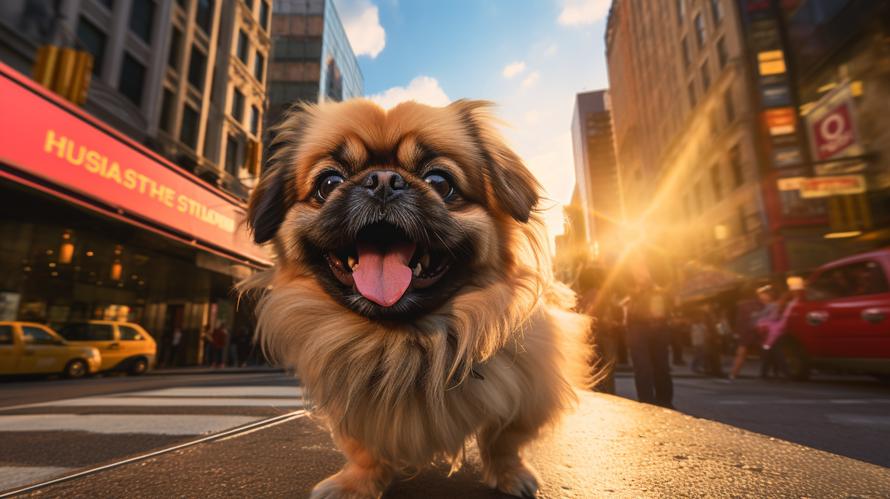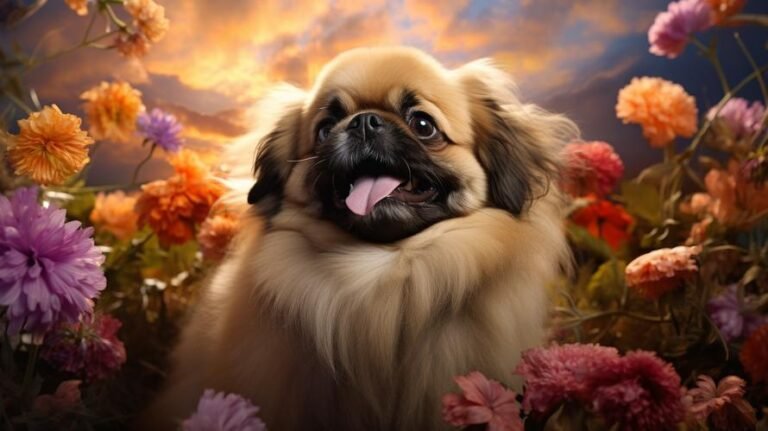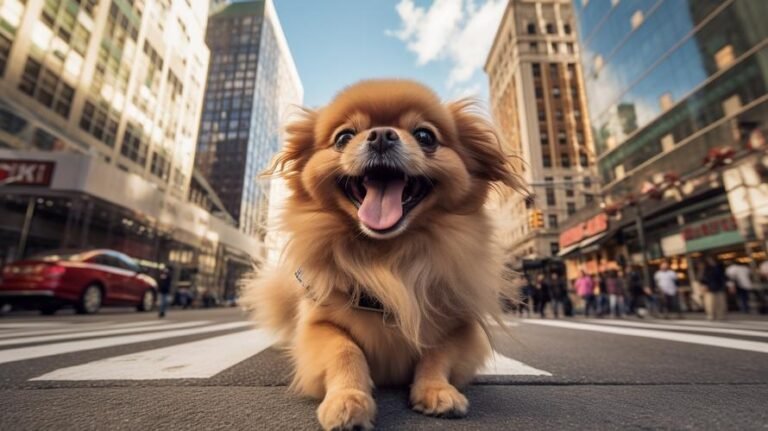You know what’s surprising? A Pekingese doesn’t eat nearly as much food as one would expect for a dog of its flaunted fur and strutting strut! Have you ever wondered why?
Well, it’s because the Pekingese has an awfully slow metabolism. That’s right! The little emperors don’t need a feastly banquet to keep their rosy cheeks and flowing coats in tip-top shape. But this doesn’t imply that they’ll gulp down anything you slide into their dish. No sir, Pekingeses are picky eaters and they should be, considering their beautifully unique and often sensitive digestive systems.
But what’s the best diet for our regal yet little friends? Let’s dig into the gastronomic world of Pekingeses and explore what’s on the menu for these tiny royals!
Now, for starters, Pekingeses do not do well with grains. Grains can swell up in their stomachs and cause discomfort. In fact, some of these Imperial treasures are so sensitive that corn, wheat, or soy may cause itchiness, rashes, hair loss, and gastrointestinal symptoms. So, rule number one: go grain-free whenever possible.
Some experts recommend raw or dehydrated food that originates from single-source protein, like chicken or turkey. Your Pekingese doesn’t need multiple sources of protein. Their tiny guts process food slowly so too many protein sources may just confuse their bellies and result in unpleasant messes for both of you.
So, rule number two: choose single-source proteins instead of multi proteins when selecting a commercial dry or wet dog food.
But not so fast. Here’s something to nibble on: great food isn’t always about what’s in it, but sometimes, about what’s not. Certain preservatives and colorants are absolute no-nos for your Pekingese. BHT, BHA, Ethoxyquin, Food Dyes – cut these chemicals out of their diet. They’re entirely unnecessary and can cause alarming health issues.
Now, onto the matter of vegetables. Yes, your Pekingese’s food should have a considerable veggie quota. However, entirely vegan or vegetarian diets are a big thumbs down. These canines are omnivores and need a balanced diet to keep their imperial aura vibrant.
Besides, a note on treats. Of course, it would be unimaginably cruel to deny an adorable Pekingese a tasty tidbit now and then. But remember, treats shouldn’t make up more than 10% of their daily calorie intake. And strictly avoid human food treats that can be toxic to dogs, like chocolates, grapes, and onions.
Water! While not technically food, water is the elixir of life. Pekingese, with their thick double coats, are prone to overheating. Always ensure they have fresh cool water, especially in hot weather.
In all this, remember, every Pekingese is unique. Royal, yes, but unique. So, when it comes to their diet, it’s necessary to recognize that what works for one Pekingese might not work for another. Tailoring a diet to match their individual health status, age, activity level, and, of course, their personal preferences is key.
For instance, a beautiful Pekingese puppy would require food packed with protein for body growth, DHA for brain development, vitamins, and minerals for a robust immune system. On the other hand, a Pekingese that’s gracefully aged may need a specialized diet focused on joint health and easy digestion.
With diet, as with so much in life, there’s no one-size-fits-all answer. But with some research, professional consultation, and a sprinkle of trial and error (peppered with plenty of love and patience), you’re sure to discover the gastronomical key to your Pekingese pal’s heart.
So, are you ready to give your Pekingese a dining experience fit for an emperor?
To borrow from a wise proverb, the journey of feeding your Pekingese a thousand meals, begins with choosing the first perfect dish. So, grab the leash, put on your dog-parent hat, and embark on this royal culinary journey with your Pekingese. Bon Appétit!



